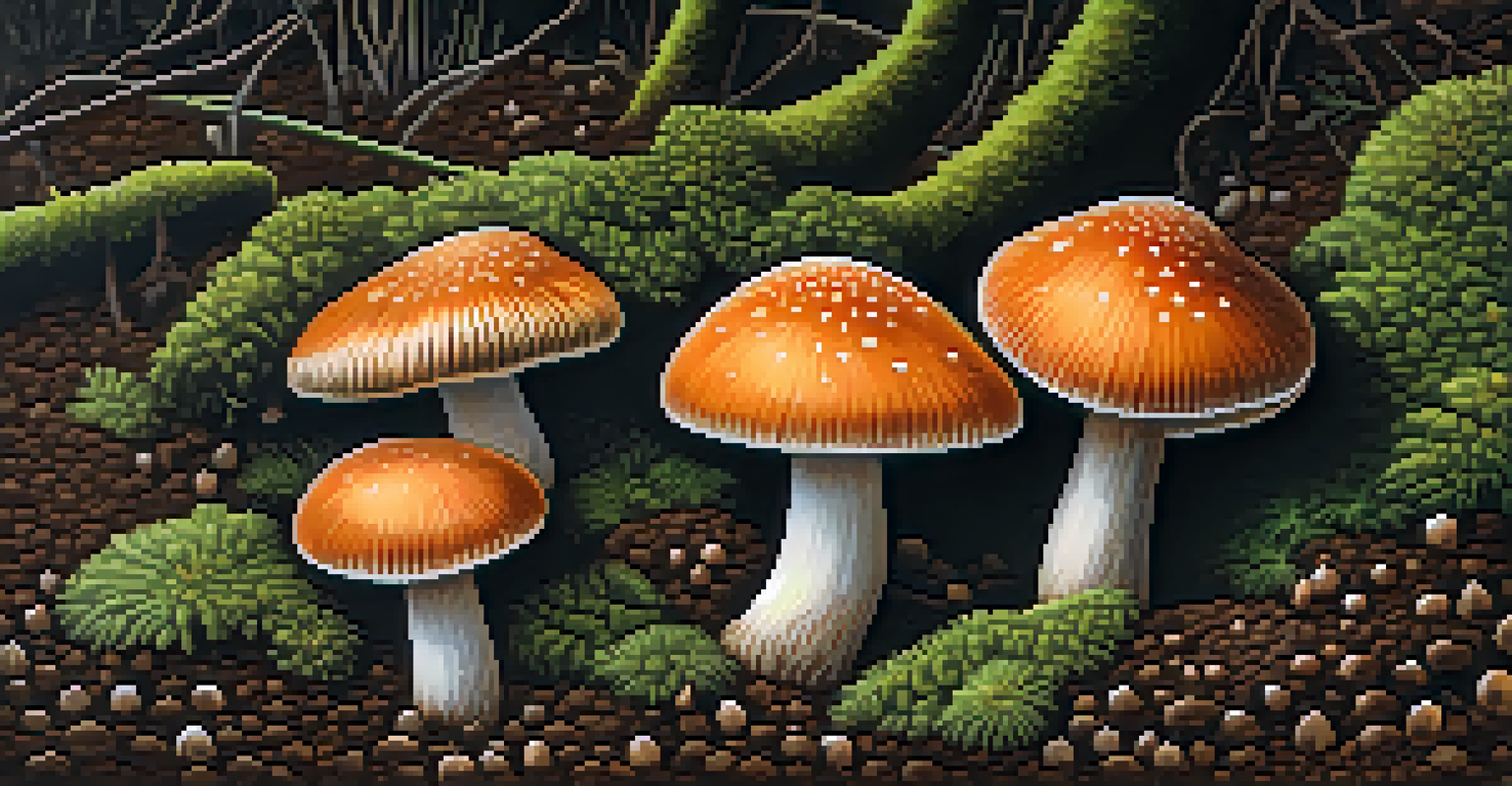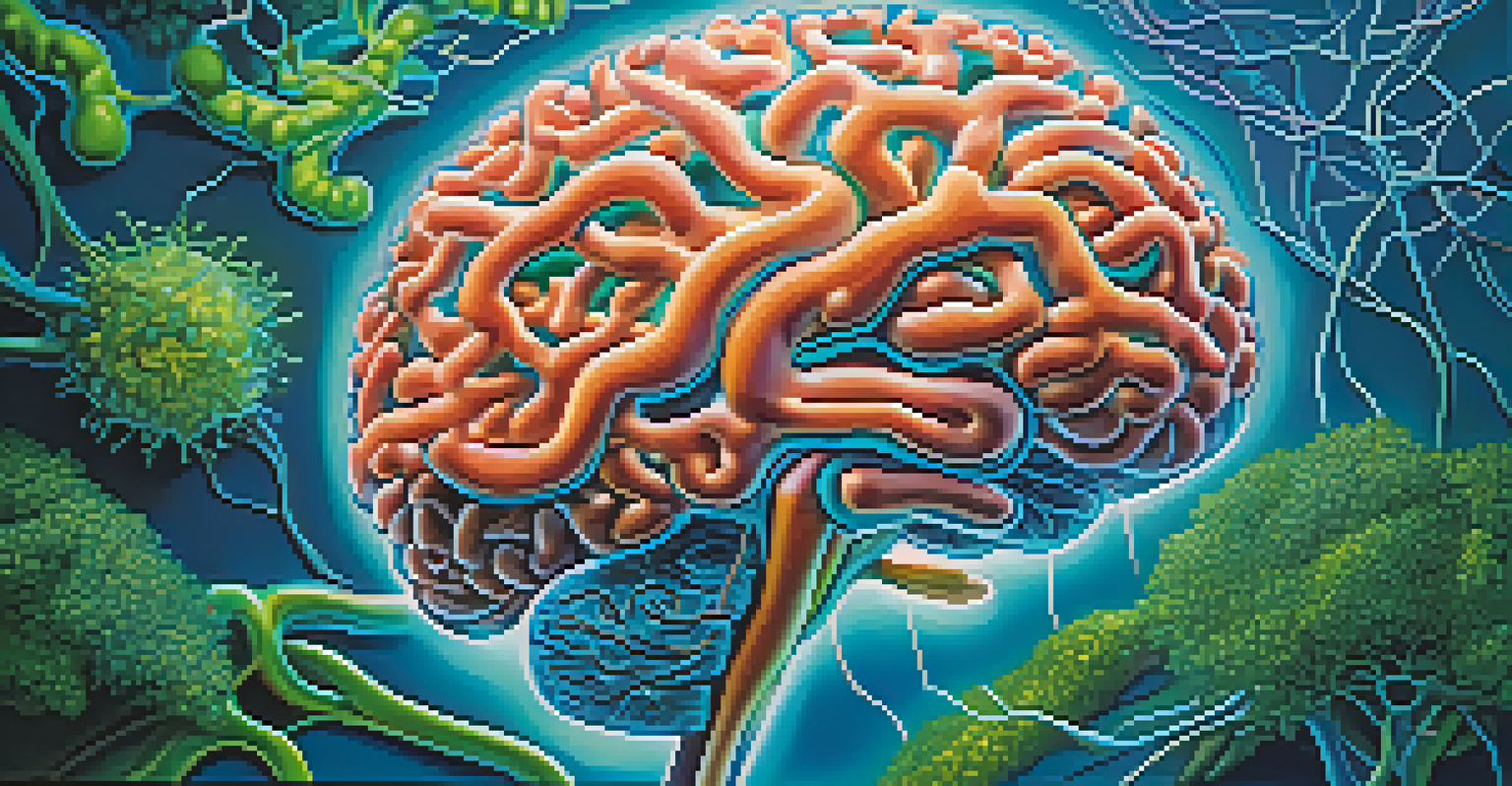Do Psychedelics Enhance Immune Response? Insights and Evidence

Understanding Psychedelics: Beyond the Experience
Psychedelics are substances that alter perception, mood, and cognitive processes. Common examples include psilocybin, found in magic mushrooms, and LSD, which can evoke profound experiences. But recent research has begun to look beyond their mind-altering effects to explore their potential therapeutic benefits, including immune system enhancement.
Psychedelics may provide a novel approach to treating mental health disorders, and research into their effects on the immune system is just beginning to scratch the surface.
The journey of understanding psychedelics isn't just about their recreational use; it's about their potential in medical science. With a resurgence in interest, scientists are examining how these substances could interact with various biological systems, including the immune response. This shift in perspective highlights the need for rigorous scientific inquiry into their effects.
By focusing on the biological mechanisms at play, researchers hope to uncover how psychedelics might influence the body’s immune system. This growing field of study aims to provide clarity on whether these substances can truly enhance immune response, paving the way for new treatment options.
The Immune System: A Brief Overview
The immune system is a complex network that protects the body from infections and diseases. It comprises various cells, tissues, and organs that work together to identify and eliminate pathogens. A well-functioning immune system is crucial for overall health, and understanding its mechanisms is key when exploring any potential enhancements.

Factors like stress, diet, and lifestyle can significantly impact immune function. For instance, chronic stress can weaken the immune response, making one more susceptible to illness. This highlights the importance of finding ways to bolster immunity, which is where the exploration of psychedelics comes into play.
Psychedelics Have Therapeutic Potential
Research is exploring how psychedelics may enhance immune function and provide new treatment options.
Researchers are particularly interested in how psychedelics might interact with the immune system at a cellular level. By studying specific immune cells and their responses to psychedelics, scientists aim to determine if these substances can trigger positive changes that enhance immune function.
Research on Psychedelics and Immune Response
Recent studies have begun to explore the connection between psychedelics and the immune system. Initial findings suggest that certain psychedelics may have anti-inflammatory effects, which can be beneficial since inflammation is a key component of many diseases. However, the research is still in its infancy, and more robust studies are needed to draw definitive conclusions.
The mind-body connection is a powerful area of research, and understanding how psychological factors impact immune health can lead to innovative treatments.
One notable study investigated the effects of psilocybin on immune response in animal models. The results indicated that psilocybin could enhance the activity of certain immune cells. While promising, translating these findings from animals to humans requires caution and further investigation.
It's essential to approach these findings with a balanced perspective. While the potential for psychedelics to enhance immune response is intriguing, ongoing research is crucial to understand their safety, efficacy, and the mechanisms involved.
Potential Mechanisms Behind Immune Enhancement
Understanding how psychedelics might enhance immune response involves exploring their impact on neurotransmitters and hormones. For example, psychedelics like psilocybin can influence serotonin levels, which play a role in regulating immune function. This connection suggests a complex interplay between the brain and immune system that warrants deeper exploration.
Moreover, psychedelics are known to induce altered states of consciousness, which can lead to profound psychological shifts. These shifts might reduce stress and promote mental well-being, indirectly benefiting immune health. The mind-body connection is a powerful area of research, and psychedelics could serve as a bridge between psychological and physical health.
Stress Reduction Benefits Immunity
By alleviating anxiety and stress, psychedelics could indirectly improve immune health.
As scientists unravel these mechanisms, they aim to determine if psychedelics can be harnessed in clinical settings to boost immune function. This could open the door to innovative treatments for various conditions, especially those linked to immune dysfunction.
Psychological Benefits and Immune Function
The psychological effects of psychedelics can also contribute to immune enhancement. For instance, many users report reduced anxiety and depression following psychedelic experiences. By alleviating psychological stress, these substances may play a role in improving overall health and, by extension, immune function.
Stress is known to have a detrimental impact on immunity, and finding ways to manage it effectively is crucial. Psychedelics, through their ability to promote introspection and emotional healing, may offer a unique approach to stress management. This holistic benefit could be a significant factor in any potential immune enhancement.
As this field evolves, understanding the relationship between mental health and immune response will be key. If psychedelics can help individuals achieve better mental well-being, it may create a ripple effect that positively influences their immune health.
Challenges and Considerations in Research
While the potential of psychedelics to enhance immune response is exciting, there are significant challenges in researching these substances. Legal restrictions surrounding psychedelics can limit access to study populations and hinder clinical trials. Navigating these regulations is essential for advancing our understanding of their effects.
Additionally, the subjective nature of psychedelic experiences complicates research efforts. Individual experiences can vary widely, making it challenging to establish consistent results across studies. Researchers must develop robust methodologies to account for these variations while seeking to understand the broader implications.
Research Faces Significant Challenges
Legal restrictions and the subjective nature of experiences complicate the study of psychedelics' effects on immunity.
Despite these challenges, there is a growing movement within the scientific community to explore psychedelics more thoroughly. As public perception shifts and regulatory barriers begin to loosen, we may see an increase in research focused on not just psychological benefits but also potential immune enhancements.
Future Directions for Psychedelic Research
The future of psychedelic research holds great promise, particularly in the realm of immune enhancement. As studies continue to emerge, a clearer picture of how these substances affect the immune system will develop. This could lead to innovative treatment modalities that leverage psychedelics for immune-related conditions.
Interdisciplinary approaches combining neuroscience, immunology, and psychology will be essential in this exploration. By collaborating across fields, researchers can better understand the multifaceted effects of psychedelics and their potential therapeutic applications. This holistic perspective could unlock new pathways for treatment.

As interest in psychedelics grows, so does the importance of public education and awareness. Ensuring that communities understand both the benefits and risks associated with psychedelics will be critical as research progresses. This informed dialogue can help shape future policies and practices surrounding these intriguing substances.